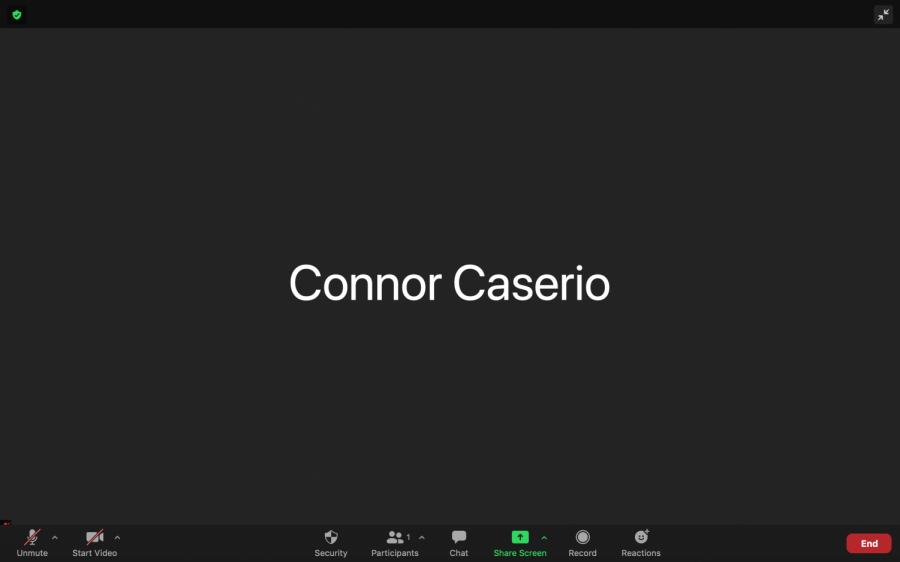We must turn our Zoom cameras on during class
By turning their Zoom cameras off, students hinder themselves academically and socially
In recent weeks, I have observed more and more of my fellow students keeping their Zoom cameras off during class. I see at least three or four blank screens each class period, with some students not turning their cameras on for weeks on end.
To these students: Please, barring any extenuating circumstances, turn your camera on during class. This message may appear overly simplistic, but I believe that my fellow Trevians sorely need to hear it right now.
At the beginning of the school year, it seemed like everyone kept their camera on during class. Most of us likely felt at least a bit excited for the new year. And the school’s emphasis on the Zoom Standards of Practice, which includes the requirement that “Students should be visible to the teacher, with their camera enabled,” further encouraged students to show their faces.
Since the beginning of the year, though, it seems like an ever-increasing number of students are keeping their cameras off during class. I am not usually one to turn my camera off, but I think I understand why many students do.
Remote learning can be a slog. Turning one’s camera off and checking out from class is far simpler than staring at a screen for seventy-plus minutes. It allows students to escape this challenging situation by playing video games, scrolling through their phones, or doing pretty much anything other than paying attention to class.
While understandable, this behavior is problematic. It hinders students’ academic and social development.
In virtual learning last spring, I occasionally turned my camera off during class. I think I did so because many of my peers, especially seniors, had also turned their cameras off.
The academic harm of this behavior was plain to me, as I felt tempted by various distractions and noticed that my ability to focus on schoolwork fell without my camera on. I worry that students who consistently turn their cameras off this year will fall behind.
And while Zoom can never replicate in-person interaction with teachers and peers, it can go a long way toward assuaging the isolation of virtual learning. Yes, Zoom interactions can be awkward—I know first hand—and that may induce students to turn off their cameras.
But in the end, when we turn our camera off, it only causes us to lose out on connections with peers that are more crucial than ever amid the pandemic.
For freshmen (the class which regrettably receives the least coverage in the New Trier News), these problems magnify.
If you’re a sophomore, junior, or senior, or an adult, think back to your freshman year. It was a chance to meet new people and start over socially. And it was most likely a big step up academically—I, for one, found freshman year to be my most academically challenging year of high school.
So, when freshmen turn off their cameras during class, they miss out on a year of tremendous social and academic importance. We should worry about all students who turn off their cameras and check out from class, but freshmen especially.
The easy answer to this problem would be to require all students to have their cameras on at all times during class.
However, this solution would be unreasonable, as there are many legitimate reasons why a student might temporarily keep their camera off during class. For instance, I sometimes turn my camera off when leaving my desk to print an assignment.
Ultimately, the burden falls on us, the students. It is our academic prospects and social connections that are hurt when we turn off our Zoom camera. We can try to blame others, but as individuals, we must take responsibility for our own future.
I am not going to get through to everyone. If a few people take heed, though, maybe then others will follow suit and, soon, more people will keep their cameras on.









































